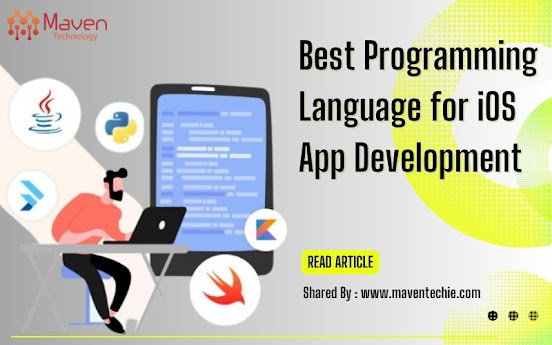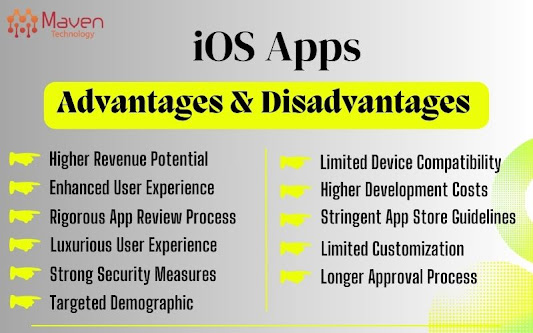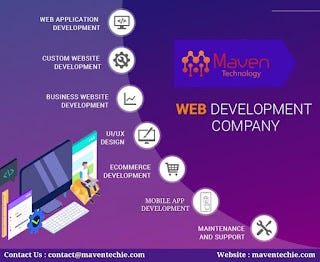iOS App Development : The Ultimate Guide
The steps for the iOS application development process are the same as what you will find in the Android app building process.
Let’s begin! There are 6,3788 billion smartphone users worldwide now. Approximately, 73% of them prefer devices with the Android operating system. The rest 27% are dedicated to Apple technologies with iOS.
Developing an iOS app can seem overwhelming for those not familiar with the process. There is a way to change the situation and make it better. If you know the right tools to start with and the proper methods to build your first app, you can achieve faster results that will excite both you and your team.
This will motivate you to continue expanding and developing your app further. The first step in the process of creating an iOS app is to decide what your goals are. Do you want to create a new app for yourself, for your business, or for a client? Which tool that you need to share with others?
We might be the best iOS app development company for your company. Let us know how we can help you move forward with your iOS app development project.
Why Acquire an iOS App for Your Business Operation?
As we know, iOS is not the leading mobile platform in the world. The first place belongs to Android with 72,18% of user preference. iOS occupies only 26.96% of the global mobile operating system market share. However, even taking second place, iOS remains one of the most successful mobile operating systems among its competitors.
But, Why develop an iOS app for your business? To have a clear answer, you need to know about the pros and cons of this platform.
Pushing the boundaries and making breakthroughs at innovations.
Clients become more tech-savvy.
Serving excellent CX.
User-friendly with its design interface.
More secure & protected opportunities.
Allowing low fragmentation.
Easy to test & running phase.
Ensure greater ROI.
As a business owner, you know what’s important to your target customers. That's why we have developed an iOS app development strategy that will help you maximize the potential of your online business and make it stand out from the crowd.
Looking for an amazing mobile operating system? Look no further than iOS, developed by none other than Apple Inc! Get ready for a seamless and intuitive user experience that will keep you coming back for more. The iOS platform is designed to run on a wide range of Apple hardware and software devices, including iPhones, iPads, and iPod Touch devices.
To build a successful iOS application, it is recommended that you go for an App Development Company that is well-known and reputed in the market.
As businesses strive to reach a wider audience, iOS app development has emerged as a crucial aspect of their growth strategy. In this blog, we will explore the process and stages involved in developing an iOS mobile application.
Ideation and Planning : The first stage of iOS app development involves ideation and planning. It is essential to define the app's purpose, target audience, and unique selling points. Conduct market research to understand user needs, preferences, and competition. Create a solid app concept, outline features, and determine the scope of the project.
Wireframing and Design : Once the app concept is solidified, it's time to move into the visual phase. Wireframing allows you to create a basic layout and structure of the app. During this stage, crafting a flawless user experience (UX) and designing an intuitive user interface (UI) is crucial. Careful consideration is given to navigation, layout, color schemes, fonts, and branding elements to ensure a visually appealing and intuitive design.
Development : The development stage is where the app starts taking shape. Skilled iOS developers use programming languages like Swift or Objective-C to code the app's functionalities. They integrate UI elements, database management, APIs, and other features as per the wireframes and design guidelines. The development process involves regular testing, bug fixing, and optimization to ensure a seamless user experience.
Testing and Quality Assurance : It's important to put our app through rigorous testing to make sure it does exactly what it's meant to do. You need to roll up your sleeves and ensure its performance is top-notch! Various testing methods such as functional testing, usability testing, performance testing, and compatibility testing are conducted to identify and rectify any issues. Bugs, glitches, or crashes are addressed, ultimately enhancing the overall quality and reliability of the app.
Deployment and Release : Once the app is thoroughly tested and approved, it's time for deployment. The app is submitted to the Apple App Store, where it undergoes a review process to meet Apple's guidelines. Once approved, it is released for download and installation by users. App Store optimization techniques are employed to improve visibility and attract potential users.
Post-Release Support and Updates : The release of an app does not mark the end of the development process. Regular updates and support are essential to address user feedback, fix bugs, introduce new features, and adapt to changing technologies and user expectations. Post-release support involves monitoring user feedback and reviews, addressing any reported issues promptly, and continuously improving the app's performance and functionality. Regular updates ensure that the app remains compatible with the latest iOS versions and devices, guaranteeing a smooth user experience.
Maintenance and Upgrades : As technology evolves, it is essential to keep the app up to date to retain user engagement and stay ahead of the competition. Maintenance involves monitoring the app's performance, analyzing user data, and making improvements based on user behavior and market trends. Upgrades may include adding new features, enhancing security measures, optimizing performance, and incorporating emerging technologies like augmented reality or machine learning.
By understanding the process and incorporating best practices, businesses can leverage iOS app development to expand their reach, engage with their audience, and achieve their goals.
Swift :
Swift, developed by Apple, is the primary programming language for iOS app development. Introduced in 2014, Swift has quickly gained traction due to its modern syntax, efficiency, and safety features. With Swift, developers can write code that is concise, expressive, and easy to understand. Swift also provides a seamless integration with existing Objective-C frameworks, making it convenient for developers to migrate or work with legacy code.
Swift is quick and flexible.
Removing involvement of middle-man or other languages which is needed to interpret the code.
Objective-C :
Objective-C has been the traditional language for iOS development for many years and continues to be widely used today. It is a superset of the C programming language and adds object-oriented features and dynamic runtime capabilities. Objective-C is known for its stability, mature libraries, and extensive support, making it a preferred choice for developers maintaining legacy codebases or integrating with existing Objective-C libraries.
C# :
C# is an object-oriented programming language developed by Microsoft in 2000 and can now be used to create iOS apps with Xamarin.
Xamarin is an open-source Microsoft software platform built on C#. Teams can streamline app development and support by sharing code for different platforms.
It offers "Great community support".
Due to its open source, it's easy to access.
Microsoft.NET framework.
High-quality performance.
Large library.
Cross & platform-friendly support.
Easy to integrate.
Scalable.
JavaScript (with frameworks like React Native) :
While not a native language for iOS development, JavaScript has gained popularity through frameworks like React Native. React Native allows developers to build iOS applications using JavaScript and a set of pre-built components. It provides the advantage of code reusability across platforms, enabling developers to create cross-platform apps with a single codebase.
Dart :
Dart, created by Google, is a statically typed programming language known for its simplicity, performance, and ease of learning. It combines the best features of object-oriented and functional programming, making it versatile and flexible for various development needs. Dart's reliable just-in-time (JIT) compiler allows for efficient and rapid development, while its ahead-of-time (AOT) compilation ensures high-performance execution.
Dart is its primary language for building cross-platform mobile applications. Dart's reactive style and comprehensive set of libraries enable developers to create beautiful UIs and build complex functionality with ease. Its efficient JIT and AOT compilation process enables the execution of code with minimal overhead, resulting in smooth animations, quick app startup times, and reduced lag. Dart's memory management and garbage collection mechanisms further optimize app performance, resulting in a seamless user experience. One of the key advantages of Flutter and Dart is the ability to write a single codebase for multiple platforms.
iOS development relies primarily on Swift, C#, Dart, and Objective-C as the core programming languages. Swift offers a modern, secure, and efficient syntax, while Objective-C provides stability and compatibility with legacy code. Additionally, C# brings a revolutionary approach to building user interfaces.
Understanding the languages used in iOS development is essential for aspiring iOS developers or businesses looking to hire iOS development Each language has its strengths and areas of application, allowing developers to build powerful, user-friendly, and innovative iOS applications.
Are You Curious About the Advantages and Drawbacks an iOS App Development? Let’s Dive in and Explore the Pros and Cons!
Apple is the leader in mobile app development. They provide us with all the tools we need to stay on top of our work and personal lives.
The best and most popular app development company in the industry, iOS app development is a subject of admiration for many people who have been using their products for a long.
If you know the benefits of iOS app development and the potential that it gives to your business, then our team will be glad to help you and make your dreams come true. The cost of iOS apps is significantly higher than the cost of Android apps. In this regard, the iOS ecosystem remains an attractive choice for enterprises.
With iOS app development, you can give your business a competitive edge. App development for iOS will allow you to create an app that is easy to use and that looks great. If you are thinking about iOS app development for your business and want to learn more about its pros and cons, then read below.
Pros of iOS App Development:
Higher Revenue Potential : Apple users tend to spend more on apps compared to Android users, making iOS a profitable platform for app monetization.
Enhanced User Experience : iOS devices are known for their seamless performance and intuitive user interface, providing an excellent user experience.
Rigorous App Review Process : The strict app review process by Apple ensures a higher quality of apps on the App Store, enhancing user trust and credibility.
Luxurious User Experience : Apple's iOS is a platform for powerful applications. It's designed to deliver an unmatched user experience. Their best-performing mobile operating system provides a smooth and seamless user experience. So, iOS is king when it comes to user experience, bringing unmatched performance and global reach.
Strong Security Measures : iOS has robust built-in security features, protecting user data and minimizing the risk of malware attacks.
Targeted Demographic : If your target audience mainly consists of tech-savvy, affluent users, iOS is a preferred platform, as it attracts a more affluent user base.
Cons of iOS App Development :
Limited Device Compatibility : Unlike Android, iOS is limited to Apple devices, reducing your potential audience reach.
Higher Development Costs : Developing and maintaining an iOS app can be costlier compared to Android due to the need for specialized developers and rigorous testing on Apple devices.
Stringent App Store Guidelines : Apple has strict guidelines for app submissions, which can lead to delayed approval or rejection if not followed meticulously.
Limited Customization : iOS offers a more standardized interface and limited customization options, potentially hindering creativity in app design and features.
Longer Approval Process : The app review process on the App Store can take longer compared to other platforms, leading to delayed app launches.
Developing an iOS app can be a lucrative venture for businesses looking to tap into the vast user base of Apple devices. However, like any technology endeavor, there are pros and cons to consider.
iOS app development comes with its share of advantages and disadvantages. While it offers the potential for higher revenue, exceptional user experience, and enhanced security, it also has limitations in terms of device compatibility, higher development costs, and stringent guidelines. Before diving into iOS app development, carefully weigh these pros and cons against your business goals, target audience, and budget. Consulting with experienced developers and conducting market research will help you make an informed decision that aligns with your business objectives.
Conclusion :
Choosing the best app development agency to build your next mobile app is a wise decision because there are pros and cons for each of them. We will help you choose the best app development company in Noida by understanding your business needs, features, and goals.
It is also of great importance what value your iOS app will bring to users, how innovative it will be, and whether it will allow your business to keep up with the progress and bring more and more profit. If there is a challenge to make money, cope with competition, and boost your business, the choice in favor of iOS apps will be obvious. To create the best application, you need to consider all the points and make a decision that will be the best for your business.
Maven Technology is a leading mobile app development company in Noida, offering Android and iOS app development services including back-end, front-end, and API development. across all domains. We are a growing company in the mobile application development field. We offer Android and iOS app development services across all domains. We aim to provide quality solutions to our clients at reasonable prices. Call us now at : +91 8851223376 , +1 3145144152




.png)


Comments
Post a Comment